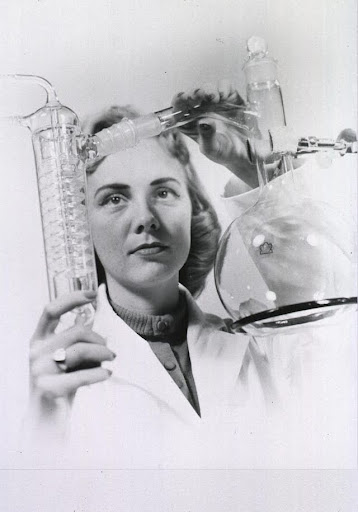 It’s been more than four years since the world was unexpectedly thrust into the deepest, darkest depths of the first major pandemic in most of our lifetimes. According to Marla Ahlgrimm, the pandemic’s effects continue to ripple through society, and women have borne the brunt of the burden.
It’s been more than four years since the world was unexpectedly thrust into the deepest, darkest depths of the first major pandemic in most of our lifetimes. According to Marla Ahlgrimm, the pandemic’s effects continue to ripple through society, and women have borne the brunt of the burden.
According to Marla Ahlgrimm, there have been many lingering effects of the pandemic on the fairer sex. These range from job losses to a staggering mental health toll to a sad increase in domestic violence.
Economic Impact
Marla Ahlgrimm explains that the pandemic disproportionately affected women. In terms of job loss, the hospitality and service industries, which are heavily dominated by women, were the ones affected first and most by lockdowns. Today, although most businesses are back to “normal,” many have found that they can operate with fewer in-person employees, meaning there continue to be fewer jobs available.
Another way that the pandemic continues to hurt women is in lingering childcare challenges. During the height of the pandemic, school and childcare facility closures forced many women out of the workforce. These women, in turn, took on more household responsibilities. According to Marla Ahlgrimm, many have found it difficult to find childcare amid a surge of women attempting to return to the workforce.
Work/Life Balance And Mental Health
If there’s one thing many women agree on, the pandemic significantly blurred the lines between work and home. Although many women already worked remotely, many knowledge-based jobs were suddenly remote. Women had to learn how to juggle even more during this time as schools and childcare centers were closed. Marla Ahlgrimm says that added burdens continue to weigh many moms down today.
Marla Ahlgrimm also notes that economic insecurity and significantly increased caregiving responsibilities (many women also found themselves taking care of aging parents during the pandemic) had a major impact on women’s mental health. The rates of anxiety and depression continue to rise even as the CDC’s COVID-19 exposure map continues to show a steady decline in the disease nationwide.
Healthcare Disruptions
Disruptions in healthcare services during the pandemic led to a backlog of delays in women’s health. Many women were forced to put aside preventative screenings, reproductive health visits, and routine checkups for a year or more. Marla Ahlgrimm says that many women continue to find it more difficult to schedule an appointment with their healthcare providers.
Domestic Violence
 Domestic violence is nothing new, but Marla Ahlgrimm says that the pandemic heightened it throughout the world. Lockdowns and social isolation made bad situations worse. Further, women had very limited access to support services for themselves, and their children were often in greater danger in the “safety” of their own homes.
Domestic violence is nothing new, but Marla Ahlgrimm says that the pandemic heightened it throughout the world. Lockdowns and social isolation made bad situations worse. Further, women had very limited access to support services for themselves, and their children were often in greater danger in the “safety” of their own homes.
Ultimately, Marla Ahlgrimm says that we are past the worst of the global healthcare crisis. And we have learned a lot about handling ourselves when our lives are on the line. However, she says that women continue to experience the effects of what we all had once hoped was just a temporary inconvenience.









 As women, we tend to use antiperspirant and deodorant daily. But how much do you know about the chemicals you’re applying to your body to stop sweat and body odor? Today, women’s health expert
As women, we tend to use antiperspirant and deodorant daily. But how much do you know about the chemicals you’re applying to your body to stop sweat and body odor? Today, women’s health expert  Marla Ahlgrimm emphasizes that women have control over their bodies, including sweat and odor management. Product choice is personal. She advocates for using the gentlest solutions possible, but acknowledges that some natural products may not be as effective as aluminum-based antiperspirants. Marla Ahlgrimm encourages women to choose what works best for them and their situation.
Marla Ahlgrimm emphasizes that women have control over their bodies, including sweat and odor management. Product choice is personal. She advocates for using the gentlest solutions possible, but acknowledges that some natural products may not be as effective as aluminum-based antiperspirants. Marla Ahlgrimm encourages women to choose what works best for them and their situation.
 We’ve all been guilty of scrolling on our phones until well past bedtime, says
We’ve all been guilty of scrolling on our phones until well past bedtime, says  The key to enjoying social media without succumbing to its dark side is to find balance. Marla Ahlgrimm says there are many ways that this can be achieved, including setting time limits, curating your newsfeed to only include uplifting sites/posters, and prioritizing real connections.
The key to enjoying social media without succumbing to its dark side is to find balance. Marla Ahlgrimm says there are many ways that this can be achieved, including setting time limits, curating your newsfeed to only include uplifting sites/posters, and prioritizing real connections.








 Marla Ahlgrimm has co-authored two ground-breaking books,
Marla Ahlgrimm has co-authored two ground-breaking books,